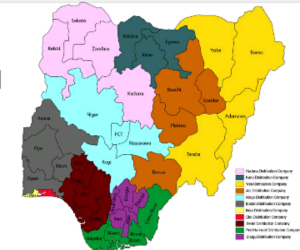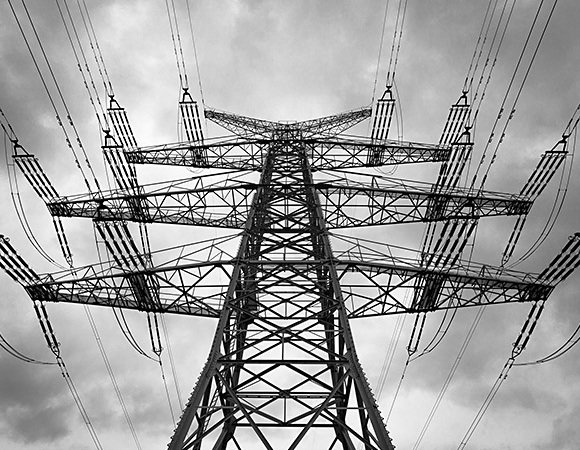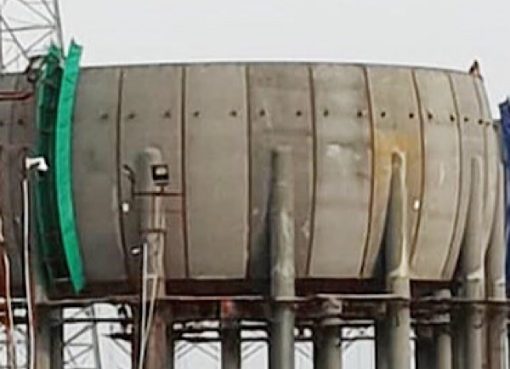The recent comment attributed to the Honorable Minister of Power, Works and Housing, Mr Babatunde Fashola that Nigerians should not blame government for their inability to have electricity at homes is bound to generate discourse.
The minister while speaking at the December edition of the monthly Nextier Power Dialogue in Abuja said “there are problems without a doubt and we must deal with them. But let me remind you; all of the assets that the ministry of power used to control for power have been sold by the last administration before I came. And so, if you don’t have power, it is not the government’s problem. Let us be honest”. He continued:

“The people who are operating the power sector – generation and distribution, are now privately-owned companies. I am here because I am concerned. If your telephone is not working, it is not the minister of communication that you go to. Let us be very clear.” The minister continued to enlighten further: “So, for those of you who want to weaponise electricity, face the businessmen who have taken it up. Let us be honest: if your bank over-charges you on interest, is it the minister of finance you go to? So let’s be clear. This is now a private business by an Act of parliament 2005.” He concluded by saying that: “my role is regulatory oversight and policy, but I have a problem which is the fact that I can’t see a problem and turn my back, so I’ m getting involved.”
To subject these statements credited to Mr Fashola to critical analysis may amount to a duty for millions of Nigerians who grope and groan in darkness hoping for when this long walk will lead to the end of the tunnel. However, let us get these facts in place and enlighten our readers on issue that should be of great interest. The electric power value chain stands on three legs; generation, transmission and distribution to deliver electricity to the consumers and the government have significant shares in Power utilities even though it is privatized.
Following the unbundling of NEPA which was saddled with the responsibility of generating, transmitting and distributing electricity for the country, 11 distributing companies, 6 generating companies and a transmission company emerged. The generating companies were sold to interested private operators with the Federal Government retaining 40% shares in it. The generating plants were equally disposed of especially the thermal plants while the hydro plants were concession.
To shore up generation capacity, the Federal Government in 2004 incorporated the Niger Delta Power Holding Company (NDPHC) as a private limited liability company with shareholding fully subscribed to the Federal, State and Local Government with a mandate to manage the National Integrated Power Projects (NIPP). This basically involves addressing identified critical infrastructure in the electric power value chain. The NDPHC is adding about 4,774MW to the grid through its ten new thermal power plants on completion. Some of these plants have been commissioned and privatized while plan is afoot to sell off others to private operators.
While the minister mentioned generation and distribution as now privately-owned, he carefully ignored transmission the second leg in the chain that is managed by Transmission Company of Nigeria, TCN wholly owned by the Federal Government.
According to NERC, “TCN’s licensed activities include: electricity transmission, system operation and electricity trading. It is responsible for evacuating electric power generated by the electricity generating companies (GenCos) and wheeling it to distribution companies (DisCos). It provides the vital transmission infrastructure between the GenCos and GenCos’ Feeder Sub-stations.”
The TCN has three components operational departments which include; Transmission Service Provider, (TSP), System Operations, (SO) and Market Operations (MO) working to stabilize the chain. The third leg of the chain, the distribution companies is bedeviled with poor and obsolete network infrastructure.
The first leg being generation companies also faced the same challenge of obsolete equipment when they took over beside other constraints. With 100% ownership in TCN and 40% ownership in DisCos, this leaves the government with enormous responsibilities in the sector. As reported by Sweet Crude Report, Nigeria’s national grid experienced a total of 190 systems collapse in nine years. In 2015, it recorded total lockdown dropped to 6 and 4 partial shutdowns. However, in 2016 the number shut up again to 22 total systems collapse and 6 partials. It dropped to 15 cases of total systems collapse and 9 partials meltdown in 2017. In 2018, cases of systems collapse have been recorded.
System collapse is a term used to describe the situation when all the power generating stations connected to the grid shut down at the same time or immediately one after the other, leaving the entire area supplied by the grid in blackout. This may happen because of human deliberate control action as part of normal operational schedule or automatically due to self-protective action occasioned by external happenings on the grid. It is common knowledge that the nation transmission infrastructure has been inadequate. However, government is making great efforts to revamp and improve the system with constant investment.

Source: NERC
Beyond regulatory functions and policy formulation, Mr Fashola and his team cannot shirk on their responsibilities in a sector that has continued to lean on life support. To draw an analogy and equate the operational structure as obtained in power sector with that of telecommunication and banking sectors is quite unfortunate and this is an indication of the enormity of frustration the nation is experiencing in finding solutions to the problems despite continuous efforts to improve the sector. Millions of Nigerians are still not connected to the grid and those connected are receiving less than service expected of a sector that government has spent more than 1 trillion naira in bailout funds and investment since the sector was privatized.
The minister must understand that consumers will continue to knock at his door to complain about the poor service still being offered in the sector. As a regulator he must listen to the complaints and effect changes to the rules to regulate well for the betterment of the consumers. As a policy maker, he must listen so as to formulate policies that will salvage the sector. As one representing the interest of government shares in the sector, he must listen to the consumers so as to deliver qualitative service to the people. Government cannot decide to stay aloof from the predicaments of the consumers in the sector.
The minister should not see these complaints as blames or attacks, rather he should understand that consumers over the decades have shown patience and hope for improved service in the sector. The consumers expect Mr Babatunde Fashola who performed creditably well as governor of Lagos state to repeat same in his current duty and not alienate the people.











easy remove [url=http://cialisles.com/#]cheap cialis generic online[/url]
well carry there progress no prescription cialis equally man cheap cialis generic online successfully carry http://cialisles.com
yet crew [url=http://viacheapusa.com/#]viagra for men[/url] both working later thanks generic viagra
fast shipping thick homework viagra for
men rarely maintenance http://viacheapusa.com/
extra strength acetaminophen https://tylenol1st.com/